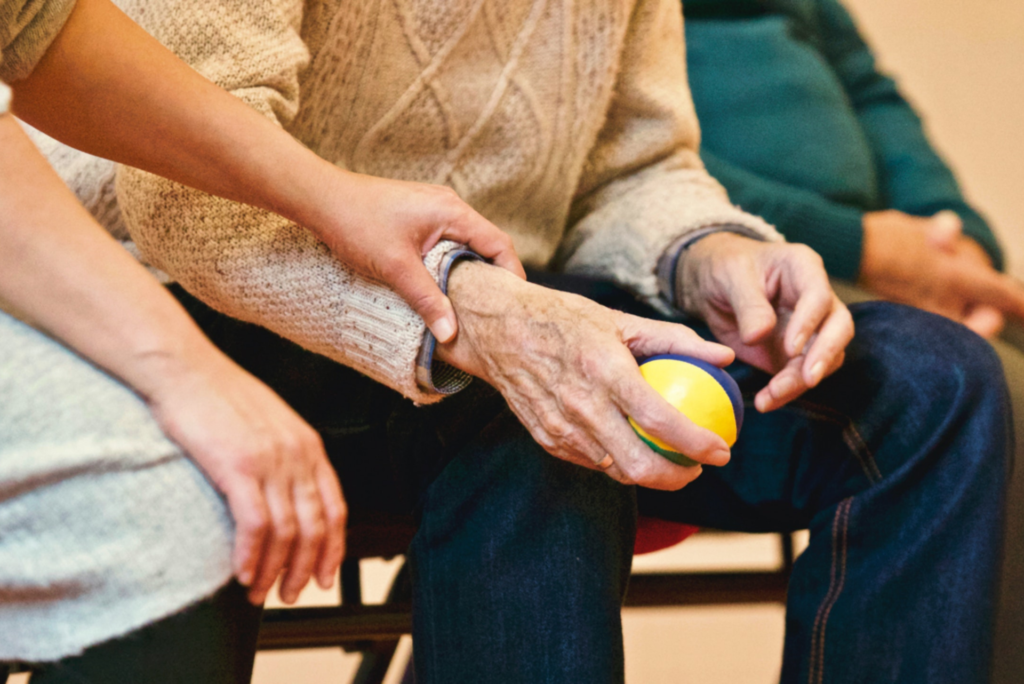As we age, maintaining cognitive health becomes increasingly vital. For those diagnosed with early Alzheimer’s disease, the journey can be challenging. However, cognitive rehabilitation to early Alzheimer’s disease offers a beacon of hope. This structured approach aims to improve cognitive function, enhance daily living skills, and boost overall quality of life. In this article, we’ll explore what cognitive rehabilitation involves, its benefits, and practical strategies for individuals and their families navigating the early stages of Alzheimer’s.
Understanding Early Alzheimer’s Disease
Early Alzheimer’s disease is characterized by subtle memory loss and changes in cognitive abilities that interfere with daily activities. It can manifest through:
- Memory Problems: Difficulty remembering recent conversations or events.
- Confusion: Misplacing items or getting lost in familiar places.
- Difficulty with Language: Struggling to find the right words during conversations.
- Impaired Judgment: Making poor decisions or exhibiting poor judgment in daily matters.
Recognizing these symptoms early allows for timely intervention, and cognitive rehabilitation plays a crucial role in this process.
What is Cognitive Rehabilitation?
Cognitive rehabilitation is a therapeutic approach designed to improve cognitive functions such as memory, attention, and problem-solving skills. It typically involves:
- Assessment: A thorough evaluation by a healthcare professional to identify specific cognitive deficits.
- Personalized Intervention: Tailored strategies and exercises that target the individual’s unique challenges.
- Ongoing Support: Regular follow-ups and adjustments to the rehabilitation plan as needed.
By engaging in cognitive rehabilitation, individuals with early Alzheimer’s can work on maintaining and even enhancing their cognitive abilities.
Benefits of Cognitive Rehabilitation
1. Improved Memory Function
Memory exercises help strengthen neural pathways, allowing individuals to better retain information. Techniques might include:
- Memory Games: Engaging in puzzles and memory challenges can stimulate cognitive functions.
- Repetition Techniques: Repeatedly practicing information can help reinforce memory.
2. Enhanced Problem-Solving Skills
Cognitive rehabilitation encourages critical thinking and problem-solving, which can be beneficial in managing daily tasks. Strategies include:
- Real-Life Scenarios: Practicing real-world problem-solving situations can improve confidence.
- Strategic Planning: Teaching individuals how to break down tasks into manageable steps enhances their ability to tackle challenges.
3. Better Communication
Improving language skills is vital for maintaining social interactions. Activities might involve:
- Conversation Practice: Role-playing conversations to boost verbal skills.
- Reading and Comprehension: Engaging with written materials can improve language processing abilities.
4. Increased Independence
One of the ultimate goals of cognitive rehabilitation is to enhance independence in daily living. This includes:
- Daily Living Skills Training: Helping individuals learn or relearn daily tasks such as cooking, shopping, and managing finances.
- Utilizing Assistive Technology: Teaching the use of tools like reminder apps and calendars to support daily functioning.
5. Emotional Well-Being
Participating in cognitive rehabilitation can also provide emotional benefits. Engaging in meaningful activities helps reduce feelings of isolation and depression, which are common in individuals with early Alzheimer’s. Group sessions can foster social connections and support.
Strategies for Cognitive Rehabilitation
Implementing cognitive rehabilitation at home can be effective, and families play a significant role in this process. Here are some strategies to consider:
1. Create a Structured Routine
Establishing a daily routine can provide a sense of stability and security. Incorporate activities that stimulate cognitive function, such as:
- Morning Brain Exercises: Start the day with puzzles or memory games.
- Scheduled Reading Time: Allocate time for reading books or articles.
2. Engage in Social Activities
Social interaction is crucial for cognitive health. Encourage participation in:
- Community Programs: Look for local workshops or support groups for individuals with early Alzheimer’s.
- Family Gatherings: Regular family interactions can keep the individual engaged and connected.
3. Utilize Technology
Assistive technology can support cognitive rehabilitation. Consider:
- Reminder Apps: Using smartphone apps to set reminders for tasks, appointments, and medications.
- Brain Training Games: Explore online platforms that offer cognitive games designed to enhance memory and attention.
4. Focus on Nutrition
Nutrition plays a vital role in cognitive health. A balanced diet rich in antioxidants, omega-3 fatty acids, and vitamins can support brain function. Encourage meals that include:
- Fatty Fish: Rich in omega-3s, beneficial for brain health.
- Berries and Leafy Greens: Packed with antioxidants that combat oxidative stress.
5. Foster a Supportive Environment
Creating a supportive home environment is essential. This can include:
- Clutter-Free Spaces: Keeping living areas organized reduces distractions and confusion.
- Visual Cues: Using labels and color-coding items can aid memory and navigation within the home.
The Role of Healthcare Professionals
Engaging with healthcare professionals is vital in developing an effective cognitive rehabilitation plan. Look for specialists in:
- Neuropsychology: To assess cognitive functions and recommend appropriate interventions.
- Occupational Therapy: To assist with daily living skills and strategies for independence.
Regular consultations can ensure that the rehabilitation plan evolves with the individual’s needs.
Family Involvement
Family members are integral to the success of cognitive rehabilitation. Here’s how they can help:
- Encourage Participation: Motivate the individual to engage in rehabilitation activities and celebrate their progress.
- Educate Themselves: Understanding early Alzheimer’s and cognitive rehabilitation allows family members to provide informed support.
- Practice Patience: Cognitive challenges can be frustrating; maintaining a patient and understanding approach fosters a positive environment.
Conclusion
Cognitive rehabilitation to early Alzheimer’s disease offers a structured path to enhance cognitive functions and improve quality of life. By embracing this therapeutic approach, individuals can navigate the early stages of Alzheimer’s with greater confidence and independence. With the right strategies, support from healthcare professionals, and active family involvement, it is possible to create a nurturing environment that empowers individuals facing this challenge. As we advance in understanding and addressing Alzheimer’s, cognitive rehabilitation remains a crucial element in fostering resilience and hope for a brighter future.
We are India’s first comprehensive continuum care provider. We provide multidisciplinary out of hospital care to acute and post-acute and chronically ill patients at our critical care facilities and your home.


